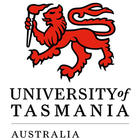- News and articles
- Find usIDP AustraliaIDP BahrainIDP BangladeshIDP CambodiaIDP CanadaIDP ChinaIDP EgyptIDP GhanaIDP Hong KongIDP IndiaIDP IndonesiaIDP IranIDP JordanIDP KenyaIDP KoreaIDP KuwaitIDP LebanonIDP MalaysiaIDP MauritiusIDP Middle EastIDP NepalIDP New ZealandIDP NigeriaIDP OmanIDP PakistanIDP PhilippinesIDP Saudi ArabiaIDP SingaporeIDP Sri LankaIDP Taiwan, ChinaIDP ThailandIDP TurkeyIDP UAEIDP VietnamIDP Corporate
- Social
- English
- Where we operate
- Courses
- Scholarships
- IELTS
- About IDP
- Student Essentials
- News and articles
- Find us
- Find us
- Find nearest IDP offices
- IDP Australia
- IDP Bahrain
- IDP Bangladesh
- IDP Cambodia
- IDP Canada
- IDP China
- IDP Egypt
- IDP Ghana
- IDP Hong Kong
- IDP India
- IDP Indonesia
- IDP Iran
- IDP Jordan
- IDP Kenya
- IDP Korea
- IDP Kuwait
- IDP Lebanon
- IDP Malaysia
- IDP Mauritius
- IDP Middle East
- IDP Nepal
- IDP New Zealand
- IDP Nigeria
- IDP Oman
- IDP Pakistan
- IDP Philippines
- IDP Saudi Arabia
- IDP Singapore
- IDP Sri Lanka
- IDP Taiwan, China
- IDP Thailand
- IDP Turkey
- IDP UAE
- IDP Vietnam
- IDP Corporate
- Social
- Language Switcher
- IDP Education /
- Colleges and Universities /
- Australia /
- University of Tasmania (UTAS) /
- Bachelor of Arts and Bachel...


Location
Australia
Qualification
Dual Degree
Fees
AUD39351
(2025)
Duration
5 Year(s)
Next intake
22 July 2025
Entry Score
6.0
IELTSCourse info
Students who graduate with a major in psychology have a wide range of career options beyond working as a counsellor or psychologist. UTAS psychology graduates have gone on to work in fields such as human resources, defence forces, health and legal agencies, and many other settings. And our research is just as varied – from working with expeditioners in the Antarctic, to communities in remote Australia; from learning how children develop language, to understanding how gaming influences behaviour. We work with organisations such as the department of health and police force, and with individuals, for example, people experiencing the effects of brain injury, substance addiction, or mental illness. Studying psychology at UTAS provides students with the opportunity to apply their knowledge to address issues relevant to regional, rural, and metropolitan societies at the local, national, and global level.
- Scholarships View all scholarships
- Internships
Entry requirements for University of Tasmania (UTAS)
Application Deadline
The application deadline isn't available Speak to an IDP counsellor for more detailed information
Further information
If you aren't eligible for the above entry requirements, you might have a chance to explore pathway options at University of Tasmania (UTAS). If you want to find out more, speak to our counsellors.
THE World Ranking
251st / 1250
THE World RankingWhat our students think
We’ve haven’t received any reviews for this institution yet.
Recommended for you
- THE World Ranking:251
- Bachelor Degree
- T��n H��ng , Australia
- Next intake:07/2025
- Entry Score: IELTS 6.5
- VND351264000 (2025)
- THE World Ranking:251
- Bachelor Degree
- Ba ����nh , Australia
- Next intake:07/2025
- Entry Score: IELTS 6.5
- VND351264000 (2025)
- THE World Ranking:201
- Bachelor Degree with Honours
- Wollongong , Australia
- Next intake:07/2025
- Entry Score: IELTS 6.5
- AUD177216 (2025)
- THE World Ranking:251
- Bachelor Degree
- Hobart , Australia
- Next intake:02/2026
- AUD144495 (2025)
- Dual Degree
- Subang Jaya , Australia
- Next intake:02/2026
- Entry Score: IELTS 7.0
- MYR134880 (2025)
- Bachelor Degree
- Roseworthy , Australia
- Next intake:02/2026
- Entry Score: IELTS 7.0
- AUD99100 (2025)
- Dual Degree
- Adelaide , Australia
- Next intake:02/2026
- Entry Score: IELTS 7.0
- AUD99000 (2025)
- THE World Ranking:83
- Dual Degree
- Sydney , Australia
- Next intake:02/2026
- Entry Score: IELTS 7.0
- AUD95500 (2025)
Your action plan
Step 1
Shortlist your courses
Choose the best three courses you’re most likely to pursue.
Step 2
Check your eligibility
Get an instant in-principle offer for courses with the IDP FastLane tag.
Step 3
Apply through IDP Live
Fill out the form once and use it to apply to multiple courses.
How does IDP FastLane work?
With the FastLane 'Offer in Principle', you'll know in minutes if you'll be accepted!
Select an institution and course
Create your academic profile
Submit your application for an 'Offer in Principle'
Your chosen institution(s) will send you a decision in minutes!
Get ready to apply with an expert counsellor




